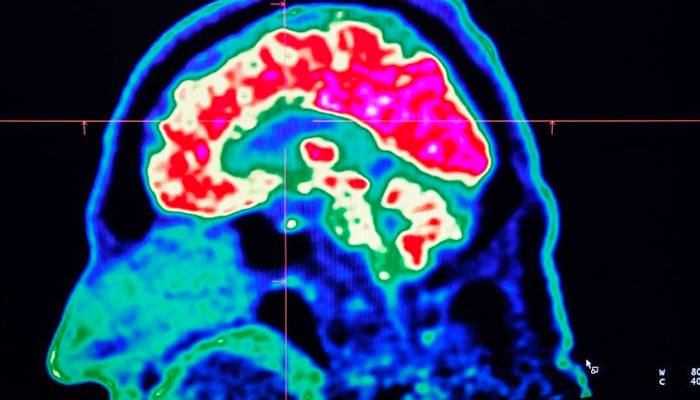Severe COVID-19 infections may put patients at risk of neurological complications: study
The team looked at the neurological symptoms of 43 patients hospitalised with either confirmed or suspected COVID-19
PARIS: A team of British-based doctors warned on Wednesday that potentially fatal COVID-19 complications in the brain including delirium, nerve damage and stroke may be more common than initially thought.
Severe COVID-19 infections are known to put patients at risk of neurological complications, but research led by University College London suggests serious problems can occur even in individuals with mild cases of the virus.
The team looked at the neurological symptoms of 43 patients hospitalised with either confirmed or suspected COVID-19.
They found 10 cases of temporary brain dysfunction, 12 cases of brain inflammation, eight strokes and eight cases of nerve damage.
Most of those patients with inflammation were diagnosed with acute disseminated encephalomyelitis (ADEM) — a rare condition typically seen in children after viral infections.
"We identified a higher than expected number of people with neurological conditions such as brain inflammation, which did not always correlate with the severity of respiratory symptoms," said Michael Zandi, of UCL's Queen Square Institute of Neurology and University College London Hospitals NHS Foundation Trust.
The research, published in the journal Brain, showed that none of patients diagnosed with neurological problems had COVID-19 in their cerebrospinal fluid, suggesting that the virus did not directly attack their brains.
Perhaps crucially, the team found that ADEM diagnoses "not related to the severity of the respiratory COVID-19 disease".
"Given that the disease has only been around for a matter of months, we might not yet know what long-term damage COVID-19 can cause," said Ross Paterson from UCL's Queen Square Institute of Neurology.
"Doctors need to be aware of possible neurological effects, as early diagnosis can improve patient outcomes."
With more than 11 million confirmed infections worldwide, COVID-19 is known to cause a variety of health complications in addition to lung infection.
While the results of the study suggest that brain complications could be more common among virus patients than first thought, experts said it didn't mean that brain damage cases were widespread.
"The scrutiny that the pandemic attracts means it would be very unlikely that there is a large parallel pandemic of unusual brain damage linked to COVID-19," said Anthony David, director of UCL's Institute of Mental Health.
-
All you need to know guide to rosacea
-
Prevent cancer with these simple lifestyle changes
-
Experts reveal keto diet as key to treating depression
-
Skipping breakfast? Here are some reasons why you shouldn't
-
Sciences reveals shocking body response against heart attack
-
Anti-inflammatory teas to keep your gut balanced
-
Emma Stone reveals she is ‘too afraid’ of her ‘own mental health’
-
5 simple rules to follow for smooth, healthy hair












